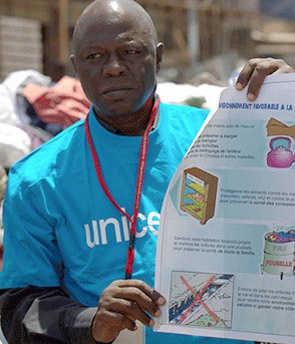Spotlight | Anthropology
Examining Ebola
Anthropologist Erica James and colleagues launch the MIT Global Health and Medical Humanities Initiative
In their inaugural event, "Examining Ebola,” the MIT Global Health and Medical Humanities Initiative led an interdiciplinary discussion of the Ebola epidemic, bringing political, economic, social, and cultural experts together to find new methods of fighting the disease.
As critical as science is to resolving dangerous epidemics, “science alone rarely has all the answers,” said Jeanne Guillemin, a senior advisor in the MIT SHASS Security Studies Program, and an authority on outbreaks of exotic disease. For effective control of public health crises, she explained, the best medical science must be accompanied by astute government leadership and an informed public.
“Conversations are happening all over MIT around different components of health and health care,” said Erica Caple James, associate professor of anthropology and director of the Global Health and Medical Humanities Initiative. “But they tend to take place in silos, with institutes and departments each focusing on their research specialties."
In a series of planned panels and collaborative events, James aims to catalyze a “new kind of conversation” at MIT and beyond. “We want to look at illness and disease from a complex perspective, not simply as a matter of individual physiology,” she says. “This means also thinking through the political, economic, social, and cultural determinants of health.”

A UNICEF worker in Guinea educates the public on how to keep families safe and to prevent the spread we distributed soap and chlorine. (Image: UNICEF Guinea)
MIT Global Health & Medical Humanities Initiative
The anthropology of humanitarianism
Anthropologist Erica James examines the effectiveness of aid to those on the margins of society.
What is medical humanities?
